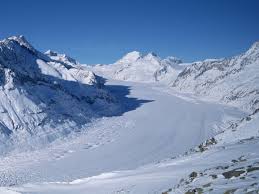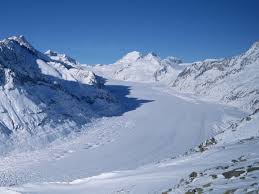
According to a report from the University of Geneva which was based on a study that made use of a new tool called the Swiss Data Cube that global warming could probably be the reason for the vanishing snow in Switzerland.
The report found that those areas in the country that were known to have very little snow – which have between 0 and 20 percent probability of being covered by snow, between 1995 and 2005 accounted for about 36 percent of the country. But that area in the region had increased to cover about 44 per cent 2005 and 2017. That translated to ain increase ion area of about 5,200 square kilometres. The authors of the report said that the numbers were not subject to any margin of error.
The study was jointly conducted by researchers from the GRID-Geneva of the United Nations Environment Program (UNEP) and from the University of Geneva (UNIGE), Switzerland.
Satellite data covering the entire area of Swiss territory and covering a time period of 22 tears formed the primary data basis of the study.
"Generally speaking, we can also observe that the low snow conditions prevailing on the plateau are gradually gaining ground in the Jura and in the Alps, a phenomenon particularly evident in the Rhone Valley," said Gregory Giuliani, a researcher at the UNIGE Institute for Environmental Sciences (ISE) and at GRID-Geneva.
AS new tool that is called the Swiss Data Cube which had been initiated on behalf of the Federal Office for the Environment (FOEN) was made use of in the study.
"Switzerland is the second country in the world, after Australia, that has developed such a data cube, and we are the first to produce such a detailed map on a country scale," said Giuliani.
The study also concluded vanishing of snow in the plateau region of the country while in the upper regions, it is slowly becoming lesser. This conclusion was based on the daqta derived from the Swiss Data Cube.
In the time period between 1995 and 2005, about 27 per cent of the Swiss territory was still covered by what is known as the "eternal snow" zone which has a high probability of snow fall – between 80 percent and 100 percent.
That number had shrunk by 3 per cent just within a decade from 2005, the study noted which amounted to a decrease in the "eternal snow" zone by about 2,100 square kilometers which is equivalent to seven times the size of the canton of Geneva.
A statement issued by the authorities also said that new data will soon be added to the existing database helped by an agreement of scientific collaboration between UNIGE and the University of Zurich (UZH).
(Source:www.xinhuanet.com)
The report found that those areas in the country that were known to have very little snow – which have between 0 and 20 percent probability of being covered by snow, between 1995 and 2005 accounted for about 36 percent of the country. But that area in the region had increased to cover about 44 per cent 2005 and 2017. That translated to ain increase ion area of about 5,200 square kilometres. The authors of the report said that the numbers were not subject to any margin of error.
The study was jointly conducted by researchers from the GRID-Geneva of the United Nations Environment Program (UNEP) and from the University of Geneva (UNIGE), Switzerland.
Satellite data covering the entire area of Swiss territory and covering a time period of 22 tears formed the primary data basis of the study.
"Generally speaking, we can also observe that the low snow conditions prevailing on the plateau are gradually gaining ground in the Jura and in the Alps, a phenomenon particularly evident in the Rhone Valley," said Gregory Giuliani, a researcher at the UNIGE Institute for Environmental Sciences (ISE) and at GRID-Geneva.
AS new tool that is called the Swiss Data Cube which had been initiated on behalf of the Federal Office for the Environment (FOEN) was made use of in the study.
"Switzerland is the second country in the world, after Australia, that has developed such a data cube, and we are the first to produce such a detailed map on a country scale," said Giuliani.
The study also concluded vanishing of snow in the plateau region of the country while in the upper regions, it is slowly becoming lesser. This conclusion was based on the daqta derived from the Swiss Data Cube.
In the time period between 1995 and 2005, about 27 per cent of the Swiss territory was still covered by what is known as the "eternal snow" zone which has a high probability of snow fall – between 80 percent and 100 percent.
That number had shrunk by 3 per cent just within a decade from 2005, the study noted which amounted to a decrease in the "eternal snow" zone by about 2,100 square kilometers which is equivalent to seven times the size of the canton of Geneva.
A statement issued by the authorities also said that new data will soon be added to the existing database helped by an agreement of scientific collaboration between UNIGE and the University of Zurich (UZH).
(Source:www.xinhuanet.com)














